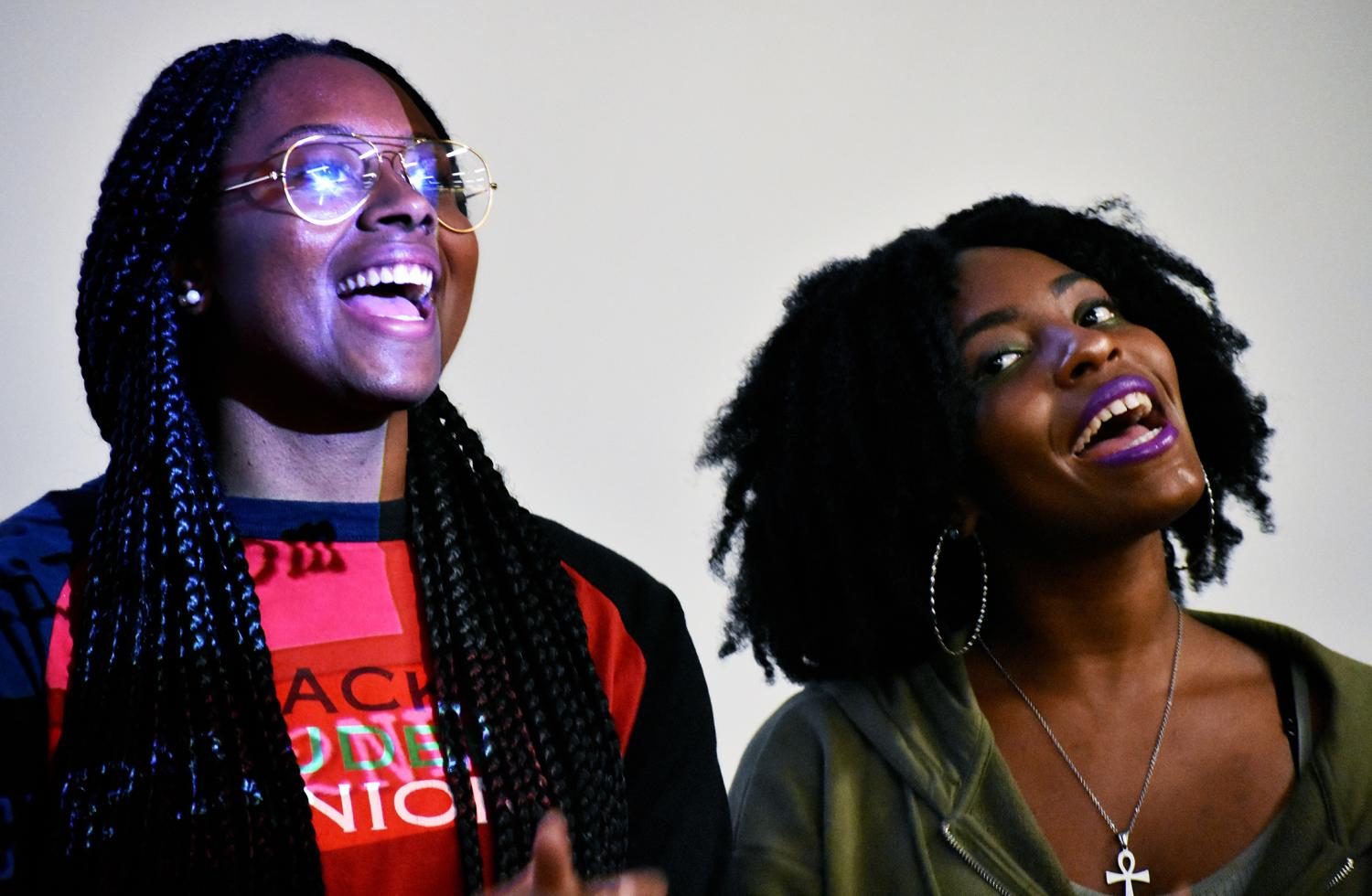Finding community at the Black Lives Summit
The event hosted by BSU helps black students, underrepresented on campus, connect with friendly faces
KEISHA BROKAW | The Daily Evergreen
God’s Harmony members sings the gospel version of the WSU fight song at the Black Lives Summit Saturday.
September 11, 2017
Black Student Union hosted its annual Black Lives Summit, dedicated to introducing freshmen and transfer students of color, particularly black students, to resources, peers and mentors.
The BSU executive leadership unveiled the theme for the school year, which is “Power in Numbers,” and the summit’s theme was “Each one, Teach one.” BSU President Chijioke Emeka stressed the importance of seeking out help as needed, especially for new students on campus.
“We want you guys to know throughout the year, you have these friendly faces,” she said, gesturing to the executive members of the organization standing next to her, before the 50 or so students in attendance.
Black faculty and staff from Residence Life, the Carson College, the Athletics, African American Student Center, Student Conduct, WSU Global Campus and the Academic Success and Career Center presented on their roles in their respective departments.
Stephan Jean Louis, a staff member of the Office of Student Conduct, explained the educational role the office plays in working with students. He joked with students that he hoped to see them around campus, but hopefully not in his office.
Courtney Benjamin, Graduate and Professional Student Association senator and graduate assistant in the African American Student Center, said the doors to her office and to retention counselor Donna Arnold’s office are wide open any time students need help, advice or just want to talk.
For many students, this was a gathering of a handful of black role models at WSU, and an introduction to a small but tight-knit community on campus.
In the fall 2015, about 4 percent of all undergraduate students enrolled were black or African American, according to data collected by Multicultural Student Services.
About 68 percent of those students were eligible for Pell Grants, and 56 percent are first-generation students.
Students broke into workshops aimed at men, women and non-binary individuals, hosted by Black Men Making a Difference (BMMAD), Black Women’s Caucus and Queer People of Color and Allies (QPOCA), respectively.
Terlona Knife, member of QPOCA and BSU secretary, facilitated a conversation about navigating intersecting sexual orientations, gender identities, racial/ethnic identities and more.
Through the workshop, they wanted to provide a space for queer, gender non-conforming or non-binary trans individuals to share their thoughts and experiences on living on the margins of already marginalized identities.
Knife shared with the group the difficulties of being a trailblazer and not having a mentor, someone to see themselves in, until the past year. Like many other students deeply involved with BSU, the relationships they forged with the community have supported them throughout their undergraduate career.
About a dozen organizations, including cultural associations, women’s advocacy groups and historically black sororities and fraternities, under BSU were present at club fair for new students to get involved.
“We’re going to stick up for you all and make sure nothing happens,” BMMAD Vice President Orion Welch said to the audience of new students. “The world is not going to help us — we help ourselves.”
Freshmen expressed concerns over the university administration’s response to the former WSU College Republicans president attending the “Unite the Right” rally in Charlottesville as well as the swastikas and bomb threats found in Stimson Hall, all within the first couple of days of the semester.
“I felt so uncomfortable,” said Roda Domach, a freshman studying pre-nursing. “I felt threatened.”
She was ready to transfer out of WSU, but changed her mind soon after she found peers and mentors in the AASC and BSU.
“It’s my community,” she said. “There are people here for me.”
Editor’s note: This article has been updated to reflect that Terlona’s last name is Knife and that Knife’s preferred pronouns are they/them. They are not the president of QPOCA, but a former board member and current general member.





















